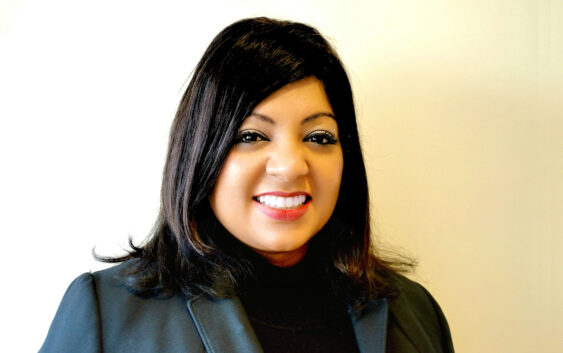- HOW TEMANE-MAPUTO ELECTRICITY TRANSMISSION LINE PROJECT IS GOING THROUGH TEST IN MOZAMBIQUE
- NEWLY OPENED PLASTIC RECYCLING PLANT SET TO HELP COMBAT NAMIBIA's PLASTIC INDUSTRY
- PROGRESS MADE ON PIIM PROJECTS AS OVER 85% COMPLETED IN ANGOLA
- WORLD BANK KICK-OFF INSPECTION OF USMID PROGRAM IN UGANDA
- ALGERIA MINISTER RECIEVED HARBOR ENERGY CEO OVER ENERGY PARTNERSHIP
UNESCO COMMENDS AFRICA’S PROGRESS TOWARDS SUSTAINABLE DEVELOPMENT GOALS, URGES ACCELERATED EFFORTS TO MEET 2030 TARGETS

15 September: Ahead of the UNESCO 9th Africa Engineering Week and 7th Africa Engineering Conference taking place at the CSIR Convention Centre, in Pretoria, from the 25th – 28th September, Rovani Sigamoney, UNESCO Education Programme Specialist and a chemical engineer, outlined the progress made by the continent on the 17 Sustainable Development Goals (SDGs)
Sub-Saharan Africa (SSA) with its one billion people, has seventy percent of young people (under 30 years) and a wealth of natural resources and minerals, making it possible for countries to collaborate to eradicate poverty, develop economically and sustainably, explains Sigamoney.
“However, according to the World Bank, economic growth has slowed on the continent since 2021, exacerbated by global events like the COVID 19 pandemic and the war in Ukraine, amongst others. Growth is expected to slowly increase again in 2024 but countries need to scale-up green energy investments, infrastructure development, transform agricultural productivity and prepare for a low-carbon future.”
In 2020, African governments were just over half way (53.8%) of achieving the SDG goals and targets. However, the COVID pandemic pushed 23.6 million Africans into extreme poverty and slowed down all the targets. While Africa faces many challenges, the three most important, according to Sigamoney, are:
- Education – there are still 288 million school-age children out of school. There is a need to increase proficiency in mathematics and reading as this is about 54% and 70% below the global average for grades 2 and 3.
- Energy – In 2022, 43% of the continent lacked access to electricity. Tapping into green energy sources can improve energy access.
- Food security – Africa needs to build resilient economic systems to reduce the reliance on food imports by transforming and modernizing agricultural productivity
In terms of education, Sigamoney explains, engineering teaching and practice needs to be updated with modern technologies and advancement in AI. “We need to get more young people, especially young girls, into the pipeline, teach them how exciting and interesting mathematics, physics and the hard sciences are.”
“With regard to energy – we need to invest in teaching and research into renewable energy systems for the continent to address and overcome our electricity and energy problems. And for food security – we can modernize agricultural systems by building technology suited to Africa to increase crop production sustainably and affordably while still preserving the planet and not destroying our nature.”
As each SDG is linked to the other, there is a need for every single one of the 17 SDGs in order to achieve the continent’s goals. This is also in line with Agenda 2063 by the African Union, which complements the targets of the SDGs. “However, if we, as engineers, look at Education (SDG 4), Clean water and sanitation (SDG 6) and Affordable and clean energy (SDG 7), we also directly and indirectly impact all the other SDGs. What we do locally makes a difference globally and thus improving Africa’s sustainably, helps the world.”
However, explains Sigamoney, despite the challenges, progress made is encouraging:
- SDG 3: Good health and well-being: Maternal mortality rates decreased significantly in Sub-Saharan Africa (SSA). The countries which greatly reduced their maternal mortality rate compared to 2017 are: Tanzania (55%), Eswatini (45%), Mauritania (39%), Ethiopia (33%) and Eritrea (33%).
- SDG 4: Primary school enrolment: In SSA, primary school enrolment increased from 60% in 2000 to 78% in 2018.
- SDGs 13 and 14: Seychelles is the highest ranked in Africa, having put in place the legal and policy frameworks required to address environmental concerns.
“Engineers are needed and involved in every one of the 17 SDGs and we need to push towards solutions that encompass sustainability. Africa desperately needs more engineers, and it is events like the 9th UNESCO Africa Engineering Week, which aims to to stimulate and excite our youth to pursue careers in engineering. We need young women engineers as well, as women make up 50% of our population and only 10 -20 % of the engineering workforce in Africa, and the most sustainable solutions are found when different minds come together to solve global problems locally,” concludes Sigamoney.

